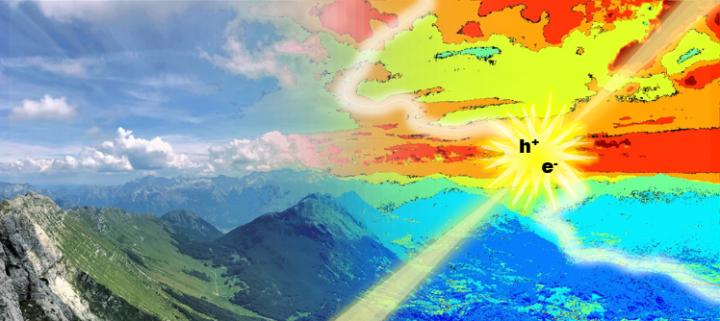From pv magazine Global
Researchers at the Center for Advanced Materials at Heidelberg University in Germany have created a new spectroscopic method they say enables detailed visualization of the energetic landscape inside organic solar cells.
The scientists claim the technique will provide a more extensive insight into the physical principles of organic PV technology while improving understanding of how energy losses occur.
“Until now, visualizing these energetic landscapes was so challenging that only rough estimates could be used to study the fundamental processes in organic photovoltaic devices,” the research team stated.
The researchers say the new method enables a more detailed map of energetic landscapes on a nano scale and is applicable at any period of a cell’s lifetime.
“Without mapping the energetic landscapes, it is difficult to understand how and why devices lose energy in the process of converting light into electricity,” said research coordinator Yana Vaynzof.
She added, the technique could enable the development of a new generation of organic PV cells with lower power losses.
Research into organic PV has driven several recent studies including papers produced by Russia’s Skolkovo Institute of Science and Technology, the U.S. Department of Energy’s Lawrence Berkeley Laboratory, and the University of Birmingham, in the U.K., with the University of Utrecht, in the Netherlands.
This content is protected by copyright and may not be reused. If you want to cooperate with us and would like to reuse some of our content, please contact: editors@pv-magazine.com.









By submitting this form you agree to pv magazine using your data for the purposes of publishing your comment.
Your personal data will only be disclosed or otherwise transmitted to third parties for the purposes of spam filtering or if this is necessary for technical maintenance of the website. Any other transfer to third parties will not take place unless this is justified on the basis of applicable data protection regulations or if pv magazine is legally obliged to do so.
You may revoke this consent at any time with effect for the future, in which case your personal data will be deleted immediately. Otherwise, your data will be deleted if pv magazine has processed your request or the purpose of data storage is fulfilled.
Further information on data privacy can be found in our Data Protection Policy.